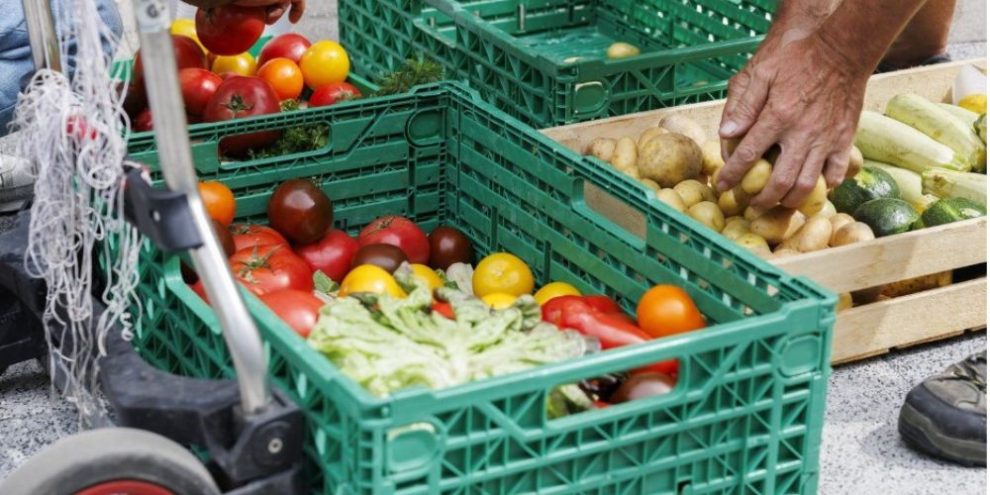
By Jamey Keaten in Geneva - The Associated Press
That head of lettuce you forgot to make a salad with starting to wilt? Did you buy too much bread before heading out for a holiday?
In an effort to help eco-conscious consumers, a Geneva nonprofit is ramping up its rollout of street-side, free-access public refrigerators that restaurateurs, at-home cooks and others can use to give away food that’s about to go bad. It’s part of a bigger effort by communities in Switzerland and other European countries to do their part for the environment while helping to cut down on food waste.
The nonprofit Free-Go — whose name riffs off the word “frigo,” a colloquial French word for refrigerator — has rolled out refrigerators and pantry shelves in Geneva where passersby can grab fruit, vegetables, bread, croissants and other perishables to take home for free.
The program costs about $40,000 to run each year and enjoys the support from both charity groups and the city government. It launched a year ago with a single fridge outside a community center in western Geneva and it now has four fridges, strategically placed around town. A fifth one is planned before year's end.
Marine Delevaux, the project’s director, says the deposited food is generally snapped up within an hour after delivery. For health and regulatory reasons, no frozen foods, open food containers, prepared meals or alcohol are allowed in the fridges.
Free-Go is also experimenting with scheduled pickups at apartment buildings to make it easier for residents to participate in the program. It has also set up a “hotline” that restaurateurs can use to call for retrieval of unused food.
“Generally, when the food collected from shops and restaurants arrives in the morning, people are already waiting to help themselves," Delevaux said, adding that the first Geneva fridge helped save some 3.2 tons of food from going to waste last year. Of the food donated, only about 3% had to be thrown away because nobody wanted it.
Free-Go says contributors of food from the private sector — such as restaurants or food vendors — must make a commitment to ensure the donated food is safe to eat. Swiss law says food past the “recommended use-by date” can be consumed for up to a year afterwards, Delevaux said.
The Swiss government estimates that nearly one-third of all food products destined for consumption is wasted or thrown away needlessly — amounting to about 330 kilograms (about 730 pounds) of food waste per inhabitant each year. Of that, about 100 kilograms (about 220 pounds) are attributed to waste by households.
Free-Go says about 1 billion tons of food go to waste every year around the world — using up energy and other resources in the farming and transportation process.
“Wasting food is not only an ethical and economic issue but it also depletes the environment of limited natural resources,” the EU’s Commission says.
Similar food-sharing campaigns are in place in the capital, Bern, and in western Neuchatel, after the idea was imported from Germany.
According to Foodsharing.de, a community group in Germany that started more than a decade ago, more than a half-million people in Germany, Switzerland and Austria have made “the food-sharing initiative an international movement” and have helped save 83 million tons of food from going to waste.
Because the food is free, and the donations can vary, it's uncertain what will turn up in the fridges — and some recipients might end up being disappointed.
Outside a community-center in a working-class area of Geneva on Friday, Shala Moradi, a 65-year-old housewife from Iran who has lived in Geneva for a decade, said she had been looking for some bread — and there was none. Yet, she says she appreciates the initiative.
“It’s very good. I can take strawberries, cherries, things like that," she said. "The free (part): I like that too.”
Fresh off depositing some tomatoes from her vegetable garden, Severine Cuendet, a 54-year-old teacher, said “we have too much” and applauded the initiative "because this neighborhood has a lot of need."
“And it happens to all of us to buy too much,” she added with a smile.
Banner image: (Salvatore Di Nolfi/Keystone via AP)
___
Geir Moulson and Kirsten Grieshaber contributed from Berlin.





